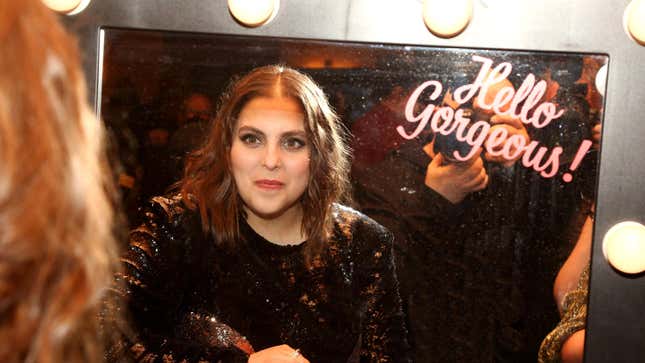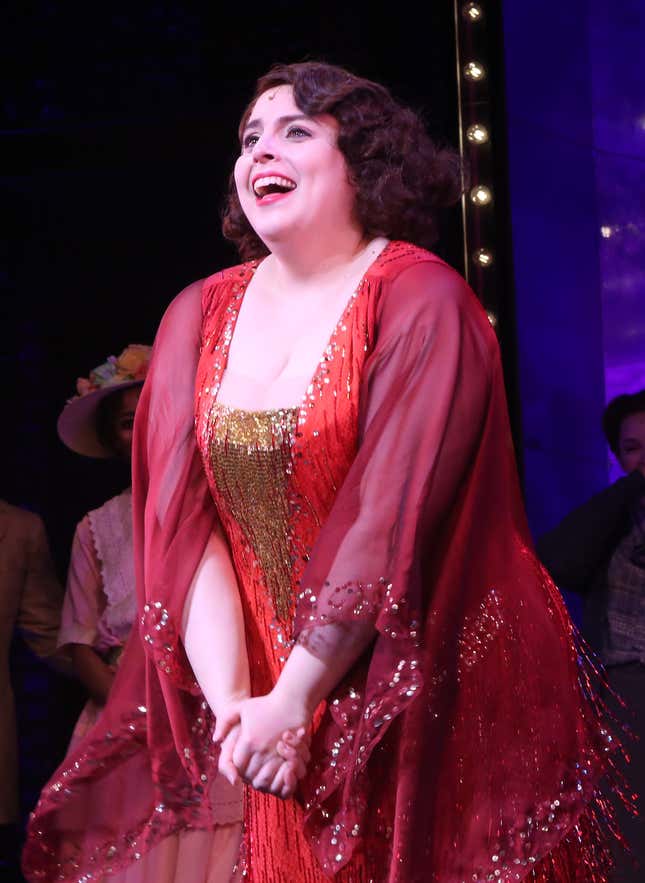I Was the Mean Girl at ‘Funny Girl’
It was one of the few remaining shows starring Beanie Feldstein as Fanny Brice, and I had to see how the casting choice would play out onstage.
In Depth

“That seat sucks,” said a kind and nearly blind usher as she pressed my ticket to Funny Girl to her eyeglasses. She shone her flashlight about 20 rows closer to the stage, directing me to row E, and said, “They’ve given me a bunch of extra seats tonight.” It was the 12th-to-last day of Beanie Feldstein playing the role of Fanny Brice on Broadway, and the house was not packed.
I’m a connoisseur of drama in the social sense, so naturally the whirling vortex of Funny Girl casting news had sucked me in. I was aware that Beanie had just recovered from tonsillitis. I was acutely aware she was leaving the production in two weeks, which probably had some bearing on the effort she was putting into her performance. I knew about the Julie Benko TikTok drama and the behind-closed-doors meetings with the producers. I somehow knew that Beanie wrote her sociology senior thesis on child actors, and I also knew that one particular former child star was gearing up to replace her. I even knew of the rumor that said former child star is unable to read Beanie’s thesis.
There’s been so much discussion of fairness regarding this production. Is Beanie’s success fully due to nepotism? Was it ethical for producers to give Beanie this role, one that she arguably cannot carry? Was it fair that Beanie quit earlier than expected? Does her replacement deserve to make a comeback? The easiest way to answer those questions for myself was to buy a ticket. Maybe, as a bonus, something so flagrant would happen at one of the last Beanie-led Funny Girls that I’d get to share with my peers: “I was there, I witnessed it. I got to see the fiery crash up close.” Like the thrill of being a first responder, if being a hater could save someone’s life.

Back in my upgraded seat, the audience had filled out a bit more, though no one was within seven seats of me in row E. There was a moment before the show when we all seemed to ever-so-slightly hold our breath as an announcer stated the evening’s understudies, but no mention of Julie Benko. Beanie it would be. And Beanie it was. And Beanie was…OK. Just as many reviewers told me she would be.
-

-

-

-

-

-

-

-

-

-

-

-

-

-

-

-

-

-

-

-

-

-

-

-

-

-

-

-

-

-

-

-

-

-

-

-

-

-

-

-








































